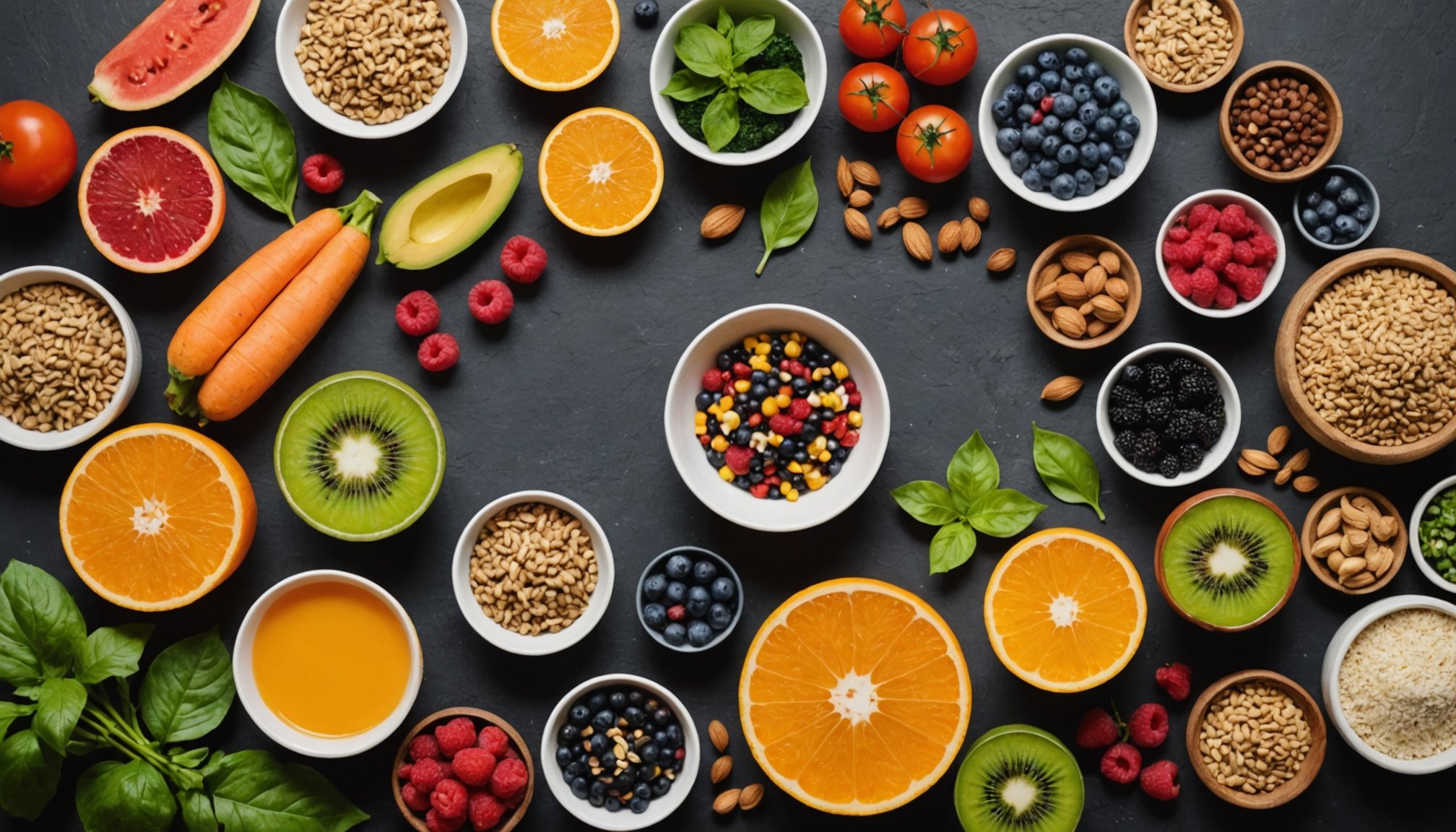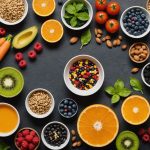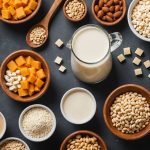Understanding Superfoods in the UK
In recent years, superfoods have gained significant attention in the UK due to their supposed health benefits and high nutritional value. But what exactly defines a superfood? Simply put, superfoods are nutrient-rich food items considered especially beneficial for overall health and well-being. They are characterised by their high levels of vitamins, minerals, antioxidants, and essential fatty acids.
In the UK, superfoods like kale, blueberries, and chia seeds have become staples in health-conscious diets. Kale, for instance, is loaded with vitamins A, K, and C, as well as calcium and iron. Blueberries are praised for their antioxidant properties, which help combat oxidative stress and may reduce the risk of heart disease. Lastly, chia seeds are a great source of omega-3 fatty acids and dietary fibre, promoting heart health and aiding digestion.
In parallel : Essential Tips for UK Vegetarians to Boost Iron Levels in Their Diet
The health benefits of these superfoods are often backed by scientific research. For example, studies suggest that consuming ample quantities of antioxidant-rich foods like blueberries can improve cognitive function and delay memory decline. Chia seeds, due to their high fibre content, are linked to reduced risk of chronic diseases, including type 2 diabetes and obesity. By incorporating these superfoods into their diet, individuals in the UK can enhance their nutritional intake and contribute positively to their health.
Creative Recipes Featuring Superfoods
Unleash the full potential of superfoods with creative and delicious recipes that elevate your meals. Dive into these inspiring meal ideas, along with some useful cooking tips, to transform your everyday eating into a nourishing experience.
Also to read : Top Non-Dairy Calcium Rich Foods for Lactose-Intolerant Individuals in the UK
Breakfast Ideas
Start your day with a powerful nutritional punch by incorporating berries into smoothies and bowls. Blend a mix of strawberries, blueberries, and spinach for a smoothie that’s both vibrant and invigorating. For those who crave something hearty, consider quinoa and spinach breakfast pots. These pots can be prepped in advance, mixing cooked quinoa with spinach, topped with a poached egg, and drizzled with a light vinaigrette. Overnight oats with chia seeds offer another convenient option. Simply soak oats and chia seeds in your favourite plant-based milk overnight, and awaken to a creamy, nutritious breakfast.
Lunch Options
Consider hearty salads highlighting kale and avocado for a midday boost. Kale is a nutrient powerhouse, and when paired with creamy avocado, it creates a satisfying salad. For a more portable meal, superfood wraps with hummus and beetroot are excellent. Spread hummus on a whole-grain wrap, add thinly-sliced beetroot, spinach, and some seeds. Another option, grain bowls with lentils and seasonal vegetables, provide a wholesome meal, rich in fibre and plant-based protein.
Snacking Alternatives
Switch up your snacks with energy balls made from a blend of nuts and seeds, offering a burst of energy perfect for any time of the day. Roasted chickpeas provide a crunchy, satisfying alternative to conventional snacks, while superfood granola bars can be your go-to bite when you’re on the move.
Seasonal Variations and Local Sourcing
Exploring the benefits of Seasonal Superfoods in the UK can lead to a more nutritious and delicious diet. Superfoods like kale, blueberries, and Brussels sprouts provide essential nutrients and thrive naturally each season. These foods are not only fresher but also more flavourful when consumed in their peak period.
Shopping at local farmers’ markets is a fantastic way to access these seasonal superfoods. Here are a few handy tips:
- Know your seasons: Learn which foods are naturally available each season, like strawberries in summer or carrots in autumn.
- Plan your visit: Farmers’ markets are busiest on weekends. Visiting on weekdays can provide a more relaxed experience.
- Ask questions: Don’t hesitate to chat with vendors. They can offer advice on the best ways to store and cook certain items.
Choosing organic and sustainable options supports environmental health. Sustainable eating reduces carbon footprints, requiring fewer resources for production and transportation. Opting for local produce ensures you consume foods grown without harmful pesticides, contributing to better health and supporting eco-friendly practices. Moreover, it bolsters local economies by helping family-run farms thrive, making it a win-win situation for both consumers and producers aiming for a healthier planet.
Cultural Adaptations of Superfoods
The integration of superfoods into traditional British dishes highlights a fascinating cultural evolution. Imagine tantalising twists such as kale-infused shepherd’s pie or goji berry-studded scones. These adaptations not only boost nutritional value but also offer a fresh take on age-old favourites. By embracing fusion cuisine, the culinary landscape expands further, blending diverse global influences with superfoods. Picture quinoa curry, where quinoa, a staple in its own right, pairs beautifully with aromatic spices, creating a vibrant dish steeped in multicultural flavours.
Engaging with local food culture is vital when trying to enhance superfood consumption. Traditionally, Brits might savour a Sunday roast; now, they can add a dash of spirulina or chia seeds to their gravy, combining heritage with modern nutritional insights. This approach not only respects cultural roots but also facilitates a broader acceptance of superfoods. It serves as a bridge, connecting people to healthier eating habits without alienating their taste preferences.
The cultural adaptation of superfoods showcases creativity and openness, encouraging individuals to experiment and engage with their daily diets. By incorporating superfoods in both traditional and fusion recipes, one can enjoy the best of both worlds—healthy eating and delightful culinary experiences.
How to Maximize Health Benefits
Achieving optimal health involves a combination of informed choices and practical guidance. Health tips like pairing superfoods can significantly enhance your body’s nutrient absorption. For example, combining foods rich in vitamin C, such as oranges or bell peppers, with iron-rich foods like spinach, can boost iron absorption, increasing your body’s uptake of this essential nutrient.
Diversifying your diet to include a wide range of superfoods is another cornerstone of comprehensive dietary guidance. Superfoods, such as quinoa, chia seeds, and blueberries, provide varied nutrients that support different bodily functions. Regularly updating your diet plan ensures you’re not missing out on any vital nutrients. This approach encourages balance and prevents nutritional deficiencies.
It’s equally essential to consult health professionals for personalized advice tailored to your unique health needs. Dietitians and nutritionists can provide customized insights, helping you refine your dietary habits. With their expertise, you’re empowered to make informed decisions about food choices that cater to your body’s specific requirements.
By incorporating these practices, you can effectively elevate your health journey, optimizing nutrient intake and improving overall well-being through better dietary habits.











